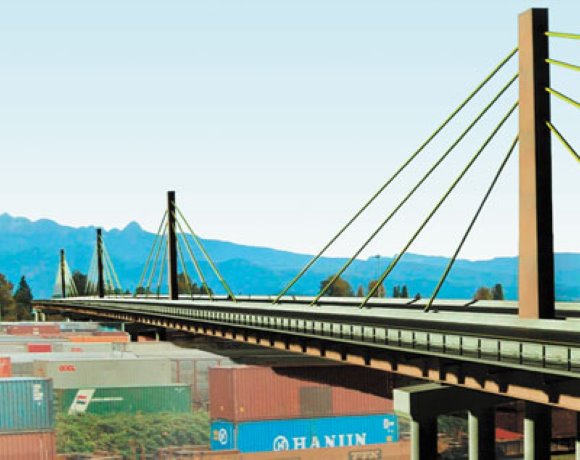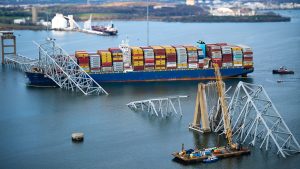A new overpass in Port Coquitlam will address long standing traffic issues, but not without significant engineering and construction challenges.
Infrastructure
A new overpass in Port Coquitlam will address long standing traffic issues, but not without significant engineering and construction challenges.
Port Coquitlam has long been physically separated between north and south by Canadian Pacific train tracks and yards spanning the entire city, resulting in bottlenecked traffic and bisected communities.
The City of Port Coquitlam decided in 2000 that some form of large-scale bridge was needed to alleviate traffic problems, but many challenges lay ahead before work could begin on the Coast Meridian Overpass, a new, four-lane overpass budgeted at $132 million.
After years of negotiations with both CPR and TransLink, construction of the overpass is set to begin this month.
“The city is basically bisected by the CPR yards, with few passes over or under. All we have is the Mary Hill Bypass and the Shaughnessy Underpass,” said Igor Zahynacz, Port Coquitlam director of engineering and operations.
The CMO will link north and south Port Coquitlam with two lanes of traffic in each direction, sidewalks, bicycle lanes and transit facilities, in the process reducing congestion on Lougheed Highway, but getting the bridge built in the first place carried many challenges, Zahynacz said.
“It’s a very limited location. We’re working on the CPR yard, but we can’t affect operations in any way, so it’s quite a difficult project. It’s a very limited location, and it’s difficult to bring trucks in. It’s actually easier to build a bridge over water,” he said.
Among the restrictions bid-winning firm SNC-Lavelin will have to work around is CPR’s insistence that no intermediate supports can be used to keep the bridge in place.
“The bridge has to built, and then launched across. The solution to the lack of intermediate supports is to use a cable-stay design as part of the launch,” Zahynacz said.
He estimated construction of the bridge will take about two years, with completion scheduled for early 2010.
The project is also part of Port Coquitlam’s official community plan, which aims to make the city more supportive of transit and environmentally sustainable.
Despite a serious labour crunch in British Columbia’s construction industry, Zahynacz said that he does not foresee any problems in obtaining the skilled labour necessary to complete the project.
“It’s a design-build project, essentially a bid for submission, so labour costs are all factored in ahead of time,” he said.
SNC-Lavelin’s contract is for $94.5 million, with Translink contributing $60 million to the $132 million budget.
The rest of the funding comes from the City of Port Coquitlam’s development charges and other sources of revenue, Zahynacz said.
SNC-Lavelin’s previous projects include work on the $1.9 billion Canada Line and the William R. Bennett Bridge across Okanagan Lake.











Recent Comments
comments for this post are closed